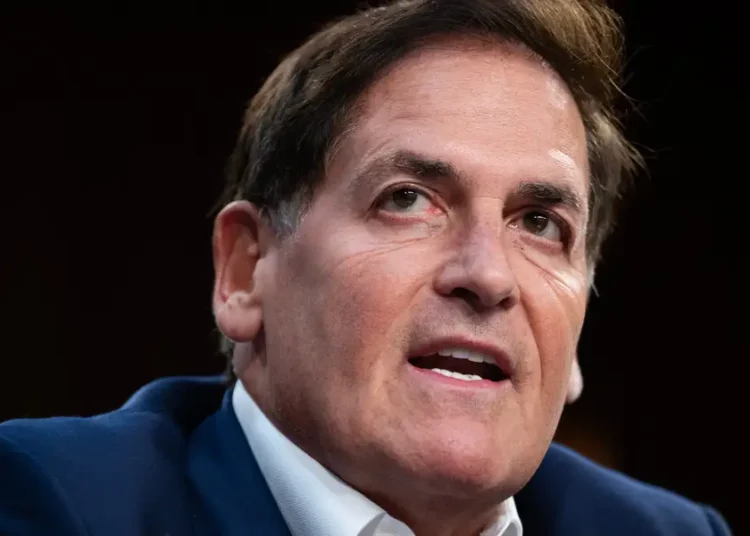A new Monroe doctrine?
Even before it deployed a giant aircraft carrier to the Caribbean, the Trump administration had already paid a lot of attention to America’s neighbors in the Western Hemisphere.
President Trump started his second term vowing to seize the Panama Canal, annex Greenland and make Canada the 51st state. He renamed the Gulf of Mexico, rechristening it the Gulf of America.
Over the summer, he used American economic might to punish Brazil with tariffs and sanctions for prosecuting his ally, the former president Jair Bolsonaro. This fall, he threw another ally, President Javier Milei of Argentina, a $20 billion economic lifeline.
But now, in what’s probably the administration’s most conspicuous intervention so far, the U.S.S. Gerald R. Ford, the world’s largest aircraft carrier, has arrived within striking distance of Venezuela. Fifteen thousand American troops now sit in the region as the administration contemplates whether to take military action against the country.
Latin America has been at the receiving end of interventions from U.S. presidents before. But as my colleague Jack Nicas, our Mexico City bureau chief, writes in his very good analysis, what we’re seeing right now is “a sharp shift of decades of U.S. foreign policy” — a pivot to the Western Hemisphere.
Some foreign policy analysts told Jack they believed Trump would like to divide the world so that the U.S., China and Russia each dominate their own spheres of influence. Trump, they said, considers the Western Hemisphere part of America’s domain.
‘Our hemisphere’
Some call this new U.S. focus “the Donroe Doctrine,” Jack explained — a sort of Trumpian twist on a 19th-century idea. (The term appeared on a January cover of The New York Post.)
In 1823, President James Monroe wanted to stop European powers from meddling in the Americas. The idea had a corollary — that the U.S. would not interfere in Europe. This became known as the Monroe Doctrine.
In 2025, America’s main rival in the world is China, which has built up enormous political and economic power in Latin America over the past decades. China has invested in mining strategic resources like lithium in Argentina, Chile and Bolivia. It is the largest buyer of Venezuelan oil. It is building factories for electric vehicles in Brazil. Russia also has a presence in Latin America, primarily in Venezuela, Cuba and Nicaragua.
U.S. officials have begun talking in Monroe-Doctrine-esque language recently, Jack points out.
“The Western Hemisphere is America’s neighborhood — and we will protect it,” Defense Secretary Pete Hegseth wrote on X on Thursday.
U.S. interest in the region isn’t hard to understand. Ample natural resources, strategic security positions and lucrative markets are all in play.
What’s less clear is whether the Monroe-era corollary about spheres of influence still applies. If America is refocused on the Western Hemisphere, does that also imply it’s willing to stay out of Russia’s and China’s neighborhoods? That would have significant implications for, among other nations, Ukraine and Taiwan.
The Venezuela question
The most imminent question mark is over Venezuela. Will the U.S. attack and if so, to what end? (Speaking to reporters on Sunday, Trump said Venezuela “wants to talk.”)
It’s possible that Trump is relying on the arrival of so much firepower to force President Nicolás Maduro, who the U.S. and many other countries say is not Venezuela’s legitimate president, to simply step down. But for now there is no sign of that: Maduro has put his own forces on high alert, leaving the two countries ready for war.
The declared aim, as Hegseth put it, is to remove “narco-terrorists from our hemisphere.”
But as my colleagues explain, if drugs were really the main target, that would not explain why an aircraft carrier was rushed from the eastern Mediterranean Sea to the Caribbean to attack small boats that, until early September, had been intercepted by the Coast Guard. Nor would it explain why Colombia and Mexico — Mexico being the main conduit for fentanyl — are not in Trump’s sights.
A better explanation, Jack said, is Trump’s wish to control America’s neighbors.
“He believes this is the neighborhood we live in,” said Mauricio Claver-Carone, Trump’s special envoy to Latin America until June, who continues to advise the White House. “You can’t be the pre-eminent global power if you’re not the pre-eminent regional power.”
ASK A CORRESPONDENT
Immigration policy has been central to Trump’s agenda since he first ran for president. His second term, however, has been full of new approaches: Migrants to the U.S. have been deported to countries with harsh human rights records, like Iran, or in some cases to places they’re not from, like Eswatini or El Salvador. Many seeking to get into the U.S. have faced new hurdles — higher visa fees, for example — while some groups, like Afrikaners from South Africa, have been embraced.
My colleague Hamed Aleaziz has been writing about immigration since 2017, and he has been covering all of this. If you have questions for Hamed about the U.S. and its immigration and deportation policies, fill out this form.
We’ll pick a few questions for him to answer in The World.
MORE TOP NEWS
The Saudi crown prince returns to Washington
Crown Prince Mohammed bin Salman of Saudi Arabia will visit the White House today after a long absence. Seven years ago, after Saudi agents killed and dismembered the Washington Post columnist Jamal Khashoggi in Istanbul, the crown prince became an international pariah — for a time.
But over the past few years, Prince Mohammed has become too powerful for American politicians and chief executives to ignore. And Trump has repeatedly proved himself a warm friend of Saudi Arabia, where his family has significant business interests.
OTHER NEWS
-
The U.N. Security Council is set to vote on a resolution to support the U.S. peace plan for Gaza. Russia has put forward a rival plan.
-
Trump reversed course and said that House Republicans should vote to release the remaining Epstein files “because we have nothing to hide.”
-
Even as cryptocurrencies gain mainstream acceptance, at least $28 billion tied to illicit activity has flowed into crypto exchanges over the last two years.
-
A Bangladesh court sentenced former Prime Minister Sheikh Hasina to death after she was convicted in absentia of crimes against humanity.
-
Jeff Bezos has created an A.I. start-up where he will be co-chief executive, his first formal operational role in a company since he left Amazon in 2021.
-
Poland said saboteurs tried to “blow up a train” that delivers aid to Ukraine.
-
The man who lunged at Ariana Grande at a Singapore premiere was sentenced to nine days in jail.
SPORTS
Football: Here are the best players on their way to the 2026 World Cup.
Basketball: The N.B.A. is seeking cellphone records from multiple teams in a gambling investigation.
NUMBER OF THE DAY
38.1 billion tons
— The amount of planet-warming carbon dioxide that nations are projected to emit this year by burning oil, gas and coal, and by manufacturing cement. That will be a new record.
MORNING READ
For the first time, scientists are tracking the migration of individual monarch butterflies across much of North America. They’re using solar-powered radio tags, which weigh just a tiny fraction of a gram, and have been attached to more than 400 monarchs this year.
The data could provide crucial insights into the poorly understood life cycles of hundreds of species of butterflies, bees and other flying insects, at a time when many are in steep decline. Read more.
AROUND THE WORLD
What they’re digging up … in the Netherlands
The port of Rotterdam, the largest harbor in Europe, might not be the kind of place you’d expect to find clues to the Pleistocene era. But the human-made beaches that surround the harbor are prime spots for finding remains of woolly mammoths, woolly rhinos and other creatures that roamed here long ago.
Under Dutch law, beach combers who find fossils in the area aren’t required to report or surrender them. Since fossil hunters don’t have to worry about losing their finds, one paleontology student thinks they’re more likely to share their discoveries. “It allows us to practice citizen science,” he said. Read more.
RECOMMENDATIONS
Watch: In Ken Burns’s new documentary, the war for American independence was also a civil war. Its timing feels urgent, our critic writes.
Read: “The Poems of Seamus Heaney” shows a master craftsman in full control of his powers.
Taste: You can retrain your palate to crave less salt.
Give: What do you get the person who hates gifts? We have suggestions.
RECIPE
Can a comforting dish really move a partner to propose? This viral Tuscan-style chicken dish promises just that. Marry Me Chicken is one of our most popular recipes.
WHERE IS THIS?
Where is this Buddha statue?
TIME TO PLAY
Here are today’s Spelling Bee, Mini Crossword, Wordle and Sudoku. Find all our games here.
You’re done for today. See you tomorrow! — Katrin
We welcome your feedback. Send us your suggestions at [email protected].
Katrin Bennhold is the host of The World, the flagship global newsletter of The New York Times.
The post Trump and the ‘Donroe Doctrine’ appeared first on New York Times.




